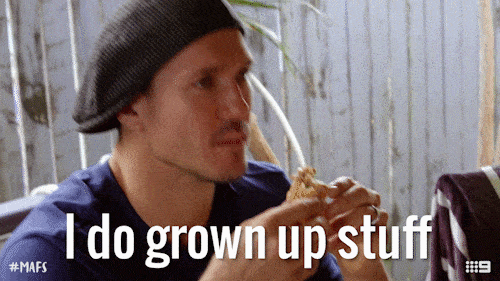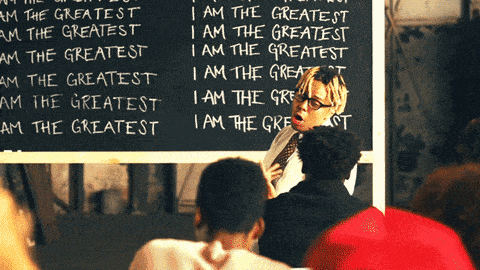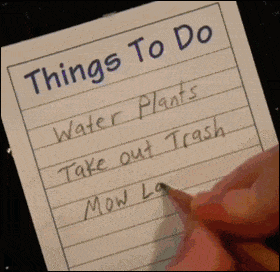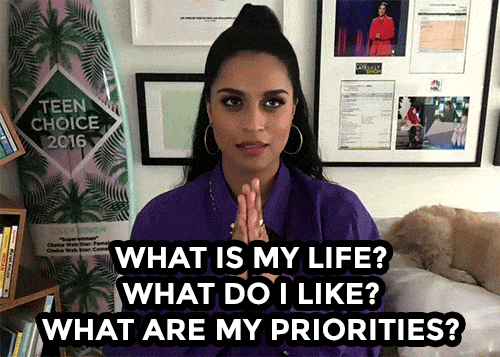Getting to finish high school, move out of home, and start to study for a degree is something that so many high school students look forward to each year! Finally, you’re free from your parents and teachers, and (hopefully) you’re going to be learning about something you actually have an interest in. That’s not to say things are going to be easy.
It can feel equally as daunting as it is exciting to go from classrooms to lecture halls, credits to points, and home to halls or flats. This article will do its very best to alleviate some of these fears, by looking at some common misconceptions high school students tend to hold about uni, as well as some useful tips that you can start using in high school to make the transition to uni that little bit easier.
Before we get into the nitty gritty, let’s look at some ways uni is probably a little bit different to what you might be imagining.

Common Misconceptions about University
- You’re restricted as to what degree you choose because it’s heavily based on the subjects you took in high school.
Yeah, okay, if you’re looking at a degree in medicine or engineering, we can’t sit here and tell you it’s going to be fine if you don’t take any sciences or calculus. However, you’ll still be able to complete most degrees, even without sitting the related subjects in NCEA.
You will find a lot of first year papers at university repeating content you learnt in high school, and the reason for this is that universities want to make sure that subjects are an even playing field for everyone! The author can confirm – she failed NCEA level two chemistry (badly) and she is still happily completing a Bachelor of Science.
- Lecturers are really strict, the rules at high school are so much more easy-going.
Teachers love to push the narrative that your future lecturers are terrifying individuals who will take any opportunity to fail you, and just generally be very unaccommodating. Funnily enough, lecturers are actually very passionate about seeing their students succeed, not crash and burn.
If you need extra assistance, or something unexpected happens to you that’s going to negatively affect your ability to perform well in an assignment, lecturers are there to help! They are able to grant extensions for you, and direct you to tutors or other individuals who are quite literally employed just to help you. Take advantage of this when you need it, but don’t abuse it. Lecturers are pretty smart people, and they’ll be able to figure out if your reasoning for needing an extension is a lie or not.
- Homework isn’t important, you only need to show up to lectures.
We can’t stress how wrong this is – there’s a reason why people always say university is like a full-time job. If you don’t revise lecture or laboratory material on your own, outside of class time, you’re going to find success impossible.

To dive deeper into the homework situation, a lot of the ways university assesses you look pretty similar to what you’ll experience in your late high school years. Essays feel a lot like internals, and exams are the grown-up mean, nasty, cousin of externals. A big difference that a lot of students do not consider when thinking about university homework is readings.
It is important to have those literacy skills as polished as you can because a surprising amount of homework you’ll encounter is simply sitting and reading a lot of academic papers. Do not make the mistake of flagging them and thinking they won’t be helpful – it’ll come back to bite you when questions about them inevitably resurface in an exam.
Now that you’re more on board with the reality of uni, we can start to dive into some useful ways you can start to prepare for university study while still at high school. Some of these will be inside the classroom, and some will be outside of it, as a lot of the differences between uni and high school can also concern the big changes that will likely happen to your personal life outside of academic work.

Ways to Prepare for University Inside the Classroom
While there are some massive lifestyle changes you’ll undoubtedly face when you’re heading off into the world, at its core, university is still about learning. So, to make the transition easier, brushing up on your independent study skills is one of the best things you can do as a high school student. Let’s dive into some of the steps you can take to ensure you’re academically prepared for tertiary study!
Work through problems on your own, before asking for help when you really need it.
A huge part of moving to university is the transition from sitting in a classroom of twenty to thirty people and waiting for a teacher to come and hover over your work, to sitting in a lecture hall full of hundreds of people. You’ll likely have smaller group-oriented classes called tutorials at other times in the week where it will be easier to get help, but in the meantime, a massive asset to doing well at uni is being able to work through a problem you encounter on your own.

While you’re still in high school, this can simply look like hesitating to ask for help immediately when you find something you’re a bit unsure of. See if you can find the answer by reading back through previous notes you might have, or research to find out if someone has a perspective on learning a concept that better suits the way you think.
If you’re able to do this well, it’s going to make running into a tricky problem in a lecture so much easier to manage. At the end of the day if you are still stuck, help will always be available if you need it! Just be mindful it might take a bit longer for a lecturer to reply to an email than putting your hand up and waiting for the teacher in English class.
Maintain the best grades you possibly can.
A big part of what students tend to stress about when they think about university is whether or not they’ll actually get in! To try and avoid and minimise this stress as much as you can, do your best to keep up the best grades you can in high school.
Some universities, such as Te Herenga Waka (Victoria University of Wellington), offer some pretty cool incentives as a result of getting good NCEA grades. You are guaranteed a place in Victoria University halls if you are able to achieve Excellence Endorsed at NCEA Level Two, and you’re more likely to qualify for some of their school-leaver scholarships.
Speaking of halls, they’re a great way to spend your first year of university, and are amazing facilities for both academic and social opportunities for students. To get in, it is really important you keep up good grades, and a good attitude about school. Hall administrators take these factors highly into consideration when deciding who deserves a place in halls.
Working toward good grades is also important before NCEA level three, because a lot of level one and two groundwork is setting you up to do well in these later years. If you’re getting good grades, it’s probably because you’re learning something (surprise!). The content you’re learning is extremely fundamental to the future of your studies, and a lot of NCEA assessments are set out specifically to assist you in really hammering that content home.
It’s why you’ll see concepts you may have already learnt in high school once you get to university. You’ll probably find these reappearing no matter how highly you choose to take your studies. If you are a biologist, you’re going to need an in-depth understanding of processes such as cell division and replication whether you’re a first year, or a PhD student.
Keep up a good relationship with your teachers.
Pre-university, your classroom teachers are your first port of call for academic support and advice. It is extremely important to remember just how valuable this can be when you’re getting ready to transition to university.
Teachers actually have a bit of input as to how you fare at uni. In some cases they send in answers to questions about you that the university or halls have an interest in knowing. These questions do not just concern your academic achievement, but also your attitude and how you conduct yourself around school. You might find this especially relevant if you go to a boarding school, because your teachers see you not only in your allocated class periods, but often during what would normally be other students’ downtime, away from school.
It’s not always easy to have a super perfect, stellar, amazing teacher-student relationship with every teacher you have, but hold on to the ones that do stick. You can ask teachers to write formal references for halls, and future job opportunities. You can even use a past teacher as a character reference when you first begin to look for a flat!
At the ripe young age of 17 or 18, it can be pretty difficult for you to figure out exactly what you want to do with the rest of your life. Maybe you’re not totally set on what you want to study after high school, or whether you want to study anything more at all. That’s another amazing asset teachers have! Do not underestimate how much insight they can have into a pathway for you to continue your education that will personally benefit you.
Teachers are well-versed in giving insightful advice to students, it comes with the job. Do not be afraid to ask them questions, maybe questions this article hasn’t answered, or questions about what they would consider to be a future study path they think you will enjoy. They won’t always have the answers, but it’s almost certain they will do their best to facilitate a way for you to obtain them.

- To conclude this section, the big takeaway is that these easy, small, suggestions, if used correctly, will hopefully make your transition to university easier. However, because a big part of university for a lot of students also means moving out of home, there are further ways you can prepare yourself for university study outside of the classroom. Brace yourself, we’re tackling these next!
Preparing for University Outside of the Classroom
Okay, in theory, you’ve got your uni prep sorted, academics-wise. Your attitude in class is perfect and you’ve got good grades from year 11 all the way through to year 13. You’re great at figuring out how to complete work individually and have no doubt you’ll easily be able to undertake the academic tasks required of you during tertiary study. BUT. And that’s a big but.
You realise that you’re going to have to keep all these things up in a different city, away from your friends and your parents. Suddenly, routines that you might have relied on in previous years will be thrown out the window in favour of a completely different way of living. Here are some ways you can prepare for this huge change outside of school to make it seem a bit less overwhelming!
Prioritise your own wants and needs over your friends’
If you’ve lived in one place your whole life (although sometimes this is not the case), you tend to have a pretty solid group of friends that you’ve stuck with for a very long time. When it comes time to think about potentially leaving that place for university study, envisioning a life without those people by your side probably feels impossible. It is extremely important that you do what is going to benefit you most in the long run anyway.
Do not pick a university, or degree, just because your friends are going to do it.
A lot of what you will experience at university will feel out of your comfort zone to begin with, and that can make you desperate to find ways to keep that bubble of people who feel like home around you. The rest of your life, quite literally, is stretching ahead of you and is pretty dependent on what you choose to study. If you have always dreamed of being a lawyer, and you believe Auckland is the best law school for you, choose it regardless of what your peers are doing.
One of the best things about the years you spend at university is how often you get to be selfish! Not in an awful person way, but in a way that means you’re totally allowed to make choices that benefit you and your future without necessarily needing to put too much thought into how it’s going to affect other people. That’s mostly just because more avenues for those choices exist while at uni, but make the most of it while you can.
Start pulling your weight around the house
The transition to university can almost feel like a sort of culture shock in regard to how much your way of living can change. Suddenly, you become responsible for a whole lot more than just waking up in the morning and heading to school. Although a lot of first year halls are catered food-wise for students, some of you may want to move straight into a flat, or you might find your hall is not catered. Learning all of the self-management skills you need to live alone while still lapping up the comforts of home is more important than you might think.
If you don’t already, start picking up little jobs around home. Things like doing washing, cooking dinner, grocery shopping, and cleaning in general are all suddenly going to become something you are responsible for once you move out. That’s on top of studying! Something as small as knowing how to operate a washing machine (if you’re reading this and thinking, “what the heck, who doesn’t?”, you would be surprised) will cushion that large jolt you’d otherwise feel taking on all this responsibility.

Another aspect of this that may not have crossed your mind is how valuable it is to brush up on your financial literacy, and understanding how things like power and WiFi operate. Spend a bit of time looking into different plans, and get a family member or knowledgeable friend to assist you if you realise it’s all looking like gibberish.
It is also extremely important to look into your student loan or student allowance and even what this might mean for potential future employment. If you are eligible for a student allowance, it means not having to pay your living expenses back to the government, but you also need to be mindful of taking on an actual job. You will only be able to work a certain amount of hours per week before you start to lose money rather than earn it. If you’re an expert on this before you get to uni, it’ll highly decrease your chances of a nasty surprise popping up in any future tax returns.
To conclude
All the changes you’ll likely experience with a move to university might seem massive, but remember that every other student embarking on the same journey as you feels the same. If you’re up to it, use the ideas discussed in this article to set yourself up for the easiest transition possible! Future you is going to be ever so grateful you made the effort.


0 Comments